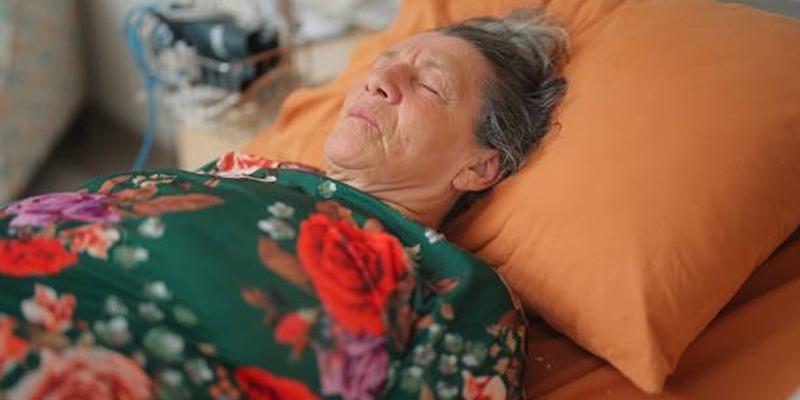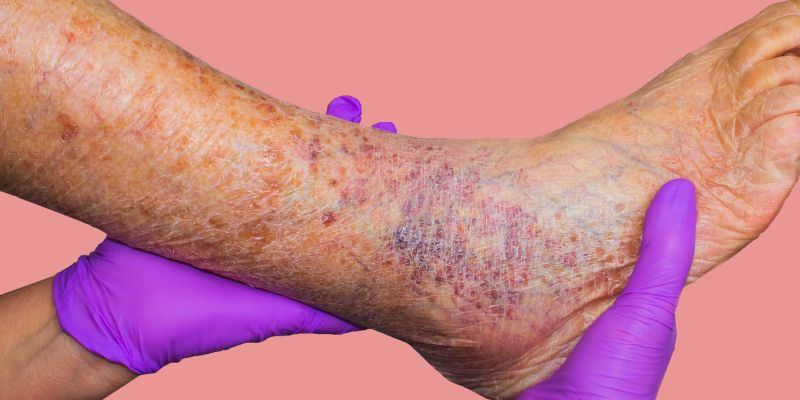Advertisement
Parkinson’s disease is an ongoing neurodegenerative disease that affects a person in many ways including affecting their sleep. Parkinson’s disease of course manifests in motor dysfunction, however, it also causes non-movement complaints such as sleep disorders. Rest is essential for the overall healthy functioning of the mind and body and disturbances in rest can worsen both motor and motor-less symptoms of the disease.
In this article, Parkinson’s disease and sleep are examined further including causes behind sleep disruptions, effects on daily functioning, and how to address sleep problems.
 Parkinson’s disease is a category of diseases that is characterized by the progressive degeneration of the part of the brain that is involved in the production of dopamine. The cardinal features are accounted for by tremor, rigidity, akinesia (slowness of movement), and postural abnormalities.
Parkinson’s disease is a category of diseases that is characterized by the progressive degeneration of the part of the brain that is involved in the production of dopamine. The cardinal features are accounted for by tremor, rigidity, akinesia (slowness of movement), and postural abnormalities.
Depression, anxiety, and sleep problems are some non-motor signs that characterize Parkinson’s disease and are generally the initial symptoms of the motor associated with the disease. Such symptoms can markedly affect one’s general health and life satisfaction and are frequently overlooked and/or not addressed.
Everyone needs sleep, but the process is vital for People with Parkinson’s disease. Sleep enables tissue growth and repair; helps build immunity, both physically and mentally, and has a regulating impact on existing mental processes such as memory and decision-making.
For Parkinson’s patients, poor sleep quality can lead to:
Understanding the connection between Parkinson’s disease and sleep problems is key to managing the condition effectively.
People with Parkinson’s often experience a range of sleep-related problems. These issues may stem directly from the disease or be influenced by medications and other factors.
Insomnia, or difficulty falling and staying asleep, is a frequent complaint among Parkinson’s patients. Contributing factors include nighttime discomfort, anxiety, and an overactive bladder, which causes frequent awakenings.
EDS affects many individuals with Parkinson’s, often due to fragmented nighttime sleep. Patients may struggle to stay awake during the day, which impacts their productivity and safety, particularly while driving or performing other tasks requiring alertness.
RBD, or REM sleep behavior disorder, is a condition where individuals physically act out vivid dreams during the REM stage of sleep. This may include talking, shouting, or making sudden movements, which can potentially pose a risk of injury to both the person experiencing it and their bed partner.
Restless Leg Syndrome triggers an irresistible urge to move the legs, often paired with unpleasant sensations. Symptoms typically intensify at night, making it challenging for individuals to unwind and fall asleep.
Obstructive sleep apnea is a prevalent sleep disorder among Parkinson’s patients. This condition occurs when the airway becomes partially or fully blocked during sleep, causing breathing interruptions and repeated awakenings throughout the night.
Causes of Sleep Problems in Parkinson’s Disease can be attributed to various factors, including neurological changes and medication side effects.
Parkinson’s disease disrupts brain areas responsible for regulating sleep and wakefulness, such as the hypothalamus and brainstem. These disruptions interfere with the normal sleep cycle, leading to fragmented sleep and other disturbances.
Medications used to manage Parkinson’s symptoms, such as levodopa and dopamine agonists, can have side effects that impact sleep. These include vivid dreams, nightmares, and nocturnal awakenings.
Many Parkinson’s patients are older adults who may already have age-related sleep issues, such as arthritis pain or heartburn. These conditions can compound the sleep difficulties caused by Parkinson’s.
Sleep problems and Parkinson’s symptoms often have a bidirectional relationship. Poor sleep can worsen motor symptoms like tremors and rigidity, while these symptoms, in turn, disrupt sleep. This cycle can lead to increased fatigue, reduced energy levels, and impaired cognitive function. Additionally, sleep deprivation may increase the risk of falls and accidents, especially for patients with balance and coordination issues.
 A good night's sleep is crucial for overall well-being, but individuals with Parkinson's disease often face unique challenges when it comes to sleep.
A good night's sleep is crucial for overall well-being, but individuals with Parkinson's disease often face unique challenges when it comes to sleep.
Creating a structured bedtime routine can help regulate the body’s internal clock. Going to bed and waking up at the same time each day, including weekends, promotes better sleep hygiene.
Relaxation techniques, such as mindfulness meditation, progressive muscle relaxation, or deep breathing exercises, can help ease anxiety and prepare the body for sleep.
Regular physical activity, such as walking, swimming, or tai chi, can improve sleep quality. Avoid strenuous exercise close to bedtime, as it may have a stimulating effect.
Discover effective strategies for managing common sleep issues.
Sleep disturbances are a common but manageable aspect of Parkinson’s disease. Addressing these issues through lifestyle changes, medication adjustments, and professional guidance can significantly improve a patient’s quality of life. Adequate sleep not only helps alleviate motor symptoms but also supports mental and emotional well-being. By understanding the link between Parkinson’s and sleep, patients and caregivers can take proactive steps toward better rest and overall health.
Advertisement

By Gabrielle Bennett /Mar 16, 2025

By Elena Davis/Jan 14, 2025

By Noa Ensign/Mar 18, 2025

By Madison Evans/Jan 03, 2024

By Nancy Miller/Jan 01, 2024

By Celia Kreitner/Jan 14, 2025

By Pamela Andrew/Dec 21, 2024

By Celia Shatzman/Mar 18, 2025

By Nancy Miller/Nov 09, 2024

By Juliana Daniel/Jan 14, 2025

By Aldrich Acheson/Dec 21, 2024

By Susan Kelly/Dec 21, 2024